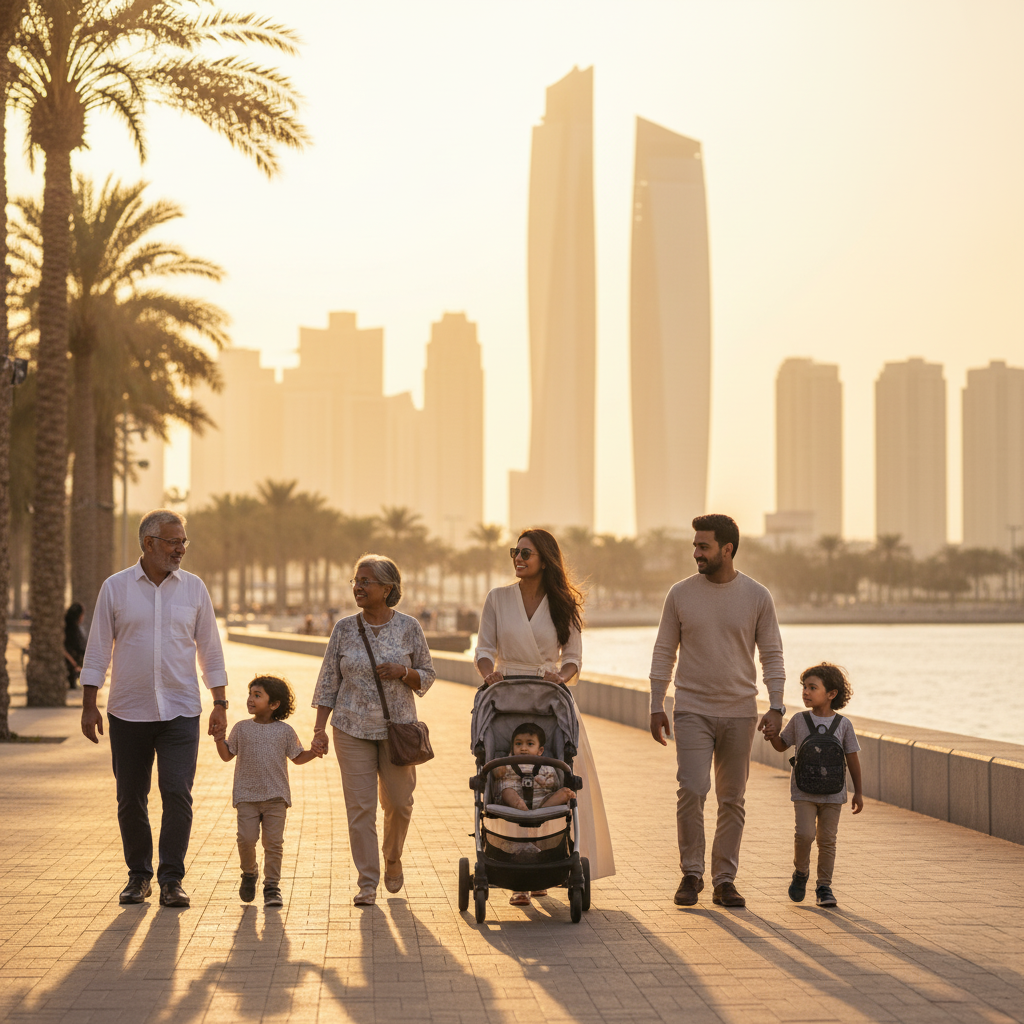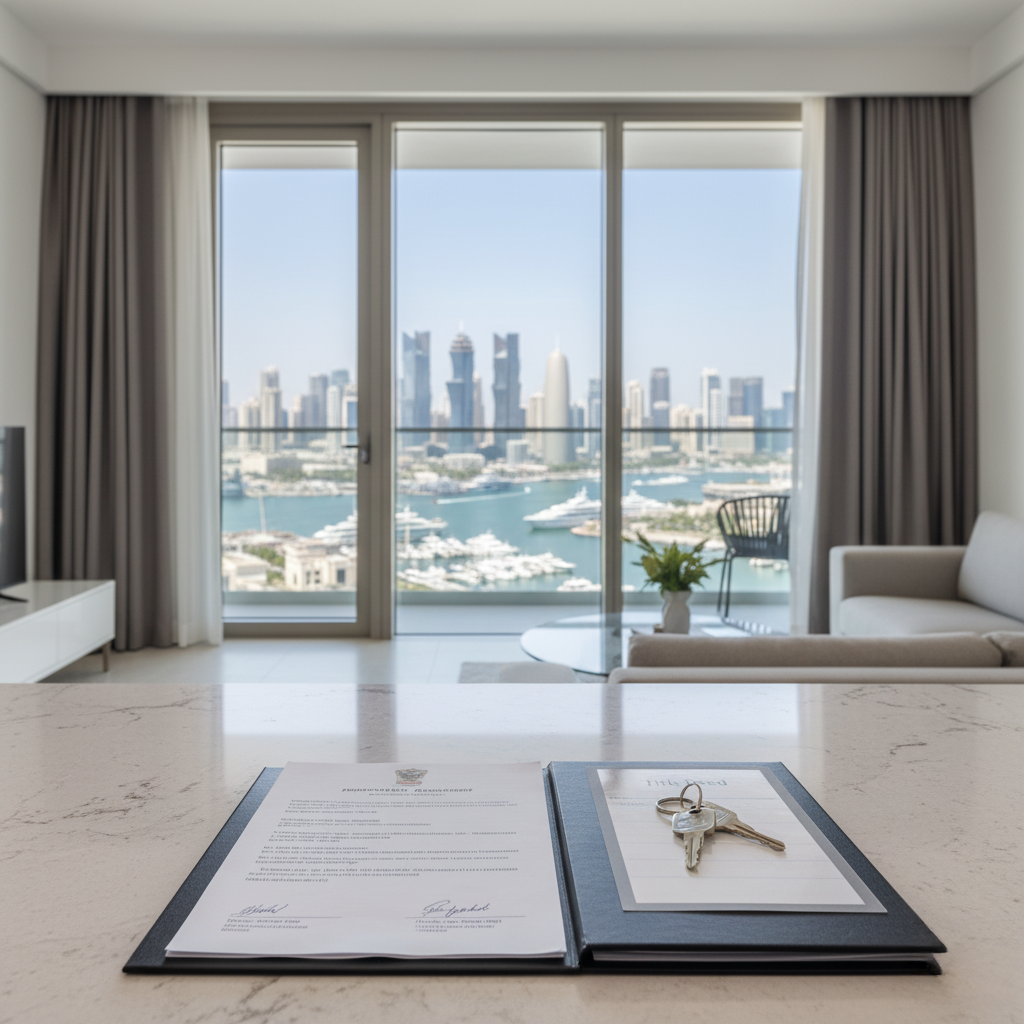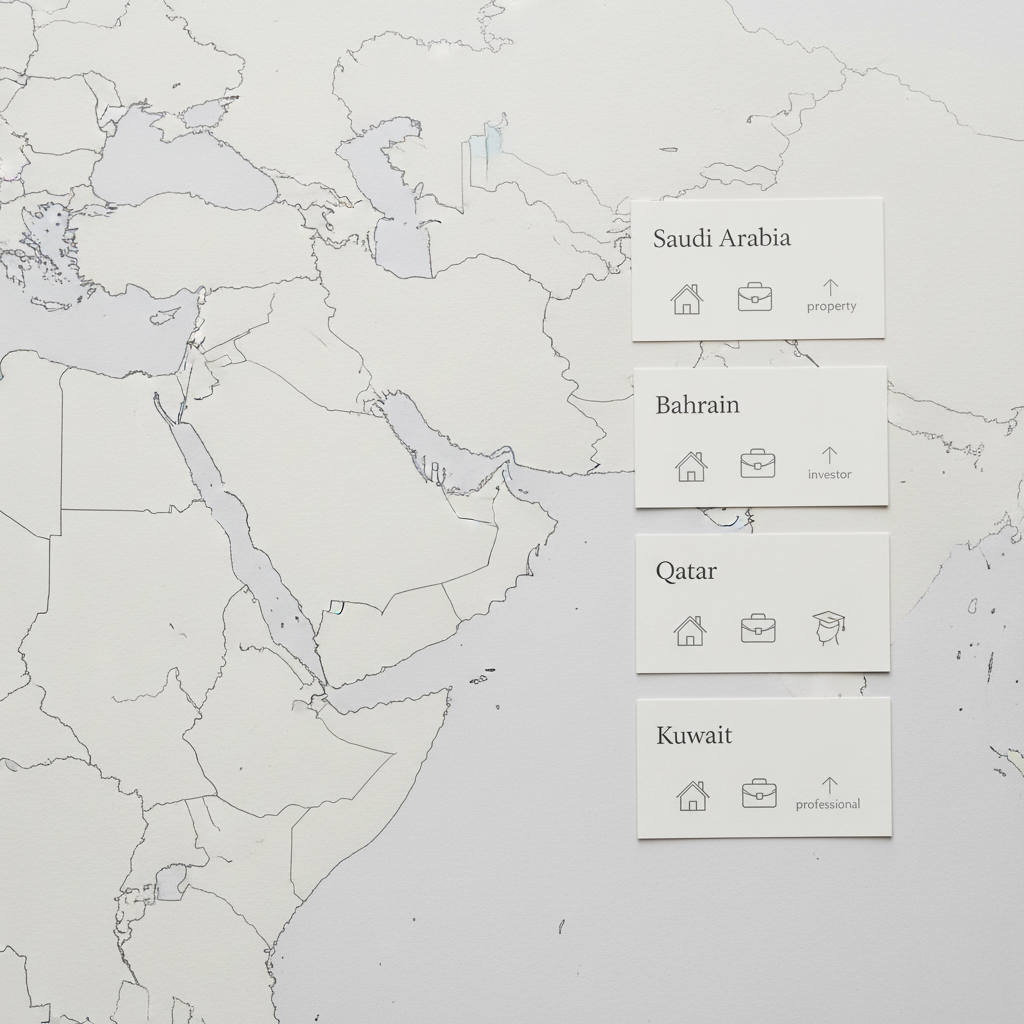For years, the rhythm of expatriate life in the Gulf was defined by the two-year visa cycle—a constant state of dependency on a sponsor, punctuated by the low-grade anxiety of renewal. Long-term planning felt like a luxury, and true stability was always just out of reach. But a fundamental shift is underway. The GCC Golden Visa is a reality. Across the Gulf Cooperation Council (GCC), a new landscape of long-term residency programs has emerged, offering a powerful solution to the old uncertainties.
This is more than just a new visa category; it’s a paradigm shift. The rise of GCC Golden Visas and Premium Residency programs represents a passport to sponsor-free living, business ownership, and the freedom to build a genuine future in the region. For professionals, investors, and entrepreneurs, the competition for talent among Gulf states has unlocked unprecedented opportunities for control and stability.
This is your definitive strategic playbook for navigating this new era. We will move beyond simple lists of requirements to provide a comprehensive, country-by-country analysis, a direct comparison of all major programs, and an actionable framework to help you choose the route that best fits your personal and professional ambitions. From the UAE’s established benchmarks to Saudi Arabia’s ambitious business-focused residency, this guide will equip you with the knowledge to secure your long-term future in the Gulf.
The End of Uncertainty: Why GCC Golden Visas Are a Game-Changer
To understand the significance of Golden Visas, one must first appreciate the system they are designed to replace. For decades, residency in the Gulf has been governed by the Kafala, or sponsorship, system. While providing a framework for managing a large expatriate workforce, this system inherently ties an individual’s legal status to a single employer or sponsor. This creates significant challenges, including restrictions on professional mobility and a persistent sense of uncertainty every time a contract ends or a visa is up for renewal.
Authoritative bodies like the International Labour Organization (ILO) have long analyzed the limitations of traditional sponsorship systems, particularly concerning their impact on worker mobility and long-term security[1]. The constant cycle of renewals and the dependency on a sponsor create a barrier to putting down deep roots, investing with confidence, and planning for a family’s future.
GCC Golden Visas and other long-term residency programs directly address these pain points. They sever the link between employment and residency, granting individuals and their families the right to live, work, and invest on their own terms. This shift provides the long-term stability for expats that was previously elusive, transforming a temporary stay into a viable, long-term plan. It’s a move from being a guest to becoming a vested resident, with the control and peace of mind that comes with it.
The New Gulf Landscape: A Country-by-Country Guide to Long-Term Residency
The Gulf states are actively competing for talent, capital, and entrepreneurial energy, and their long-term residency programs are the primary tools in this contest. Each country has tailored its offering to attract a specific profile of resident, from property investors to high-earning professionals. Understanding the nuances of each program, based on official government sources, is the first step in building your regional strategy.
UAE: The Regional Benchmark for Golden and Green Visas
The United Arab Emirates set the regional standard with its comprehensive long-term visa programs. It offers two powerful, sponsor-free pathways that cater to a wide range of individuals.
The 10-year Golden Visa is the flagship program. According to the Official UAE Golden Visa Program, key eligibility routes include[2]:
- Property Investment: Purchasing a property worth at least AED 2 million. If the property is mortgaged, the owner must have paid at least AED 2 million in equity to the bank.
- Business Investment: Investing AED 2 million in an accredited local investment fund or a commercial/industrial company.
- Skilled Professionals: Holding a valid employment contract in a specialized field with a bachelor’s degree or equivalent and a monthly salary of at least AED 30,000.
- Exceptional Talents: Individuals in fields like science, art, culture, and digital technology can apply with endorsements from relevant government bodies.
Addressing a critical gap for those who don’t meet the Golden Visa thresholds, the UAE also introduced the 5-year Green Visa. This sponsor-free residency is a game-changer for skilled employ

Saudi Arabia: Premium Residency for Scalable Business Operations
Saudi Arabia’s Premium Residency program is strategically designed to attract investors, entrepreneurs, and talents who are serious about operating and scaling within the Kingdom. It effectively solves cross-border business challenges by granting sponsor-free living and working rights, property ownership, and the ability to run a business without a local partner.
The program, managed through the official Saudi Premium Residency Portal, offers two primary tracks[4]:
- Limited Duration (SP1): A renewable one-year residency costing SAR 100,000 annually.
- Unlimited Duration (SP2): A permanent residency granted for a one-time fee of SAR 800,000.
Beyond these, there are specialized categories for real estate investors (requiring a minimum property value of SAR 4 million, with appraisals managed by the Saudi Authority for Accredited Valuers (TAQEEM)[5]), investors, entrepreneurs, and exceptional talents. This program is particularly well-suited for those executing large contracts, managing local teams, and requiring a deep, long-term presence in the region’s largest economy.
Bahrain: Flexible 10-Year Residency for Professionals and Retirees
Bahrain offers one of the most flexible and accessible long-term residency programs in the Gulf, with clear pathways for professionals who may not wish to invest in property. The renewable 10-year Golden Residency Visa is managed by Bahrain’s Nationality, Passports, and Residence Affairs (NPRA)[6].
The key eligibility routes are refreshingly straightforward:
- Skilled Professionals: Salaried residents who have lived in Bahrain for at least five years and have earned an average basic salary of BHD 2,000 or more per month. This addresses a key question for many, focusing on a proven track record of professional contribution.
- Property Owners: Individuals who own one or more properties in Bahrain with a total value of at least BHD 200,000.
- Retirees: Individuals with a monthly retirement income of BHD 4,000 or more.
- Highly Talented Individuals: Those with recognized talents who meet specific criteria.
Bahrain’s focus on a salary-based route makes it an attractive and predictable option for long-term employees, consultants, and senior managers seeking regional stability without a major capital outlay.
Bahrain’s Ten-Year Flexibility for Professionals
Bahrain offers a renewable ten-year permit with work rights and sponsor-free residence. Family coverage is straightforward, and the routes are refreshingly simple. Property owners need real estate worth BHD 200,000 or more to qualify. Professionals earning BHD 2,000 monthly can apply without buying property at all. Retirees with BHD 4,000 in monthly pension income have a dedicated route. Recognised talent with authority endorsements also qualify. The professional route requires salary letters, contract history, and degree attestations where applicable. You upload passport copies, photos, police clearance, and family documents before submitting online and paying fees. Biometrics follow, and then you collect your visa. Bahrain feels predictable and friendly to white-collar residents who value stability over flash. It works brilliantly for long-term employees and consultants who want regional access without complexity.

Qatar: The Fast-Track Property Ownership Route
Qatar has directly linked its long-term residency program to real estate investment, creating a streamlined and often rapid process for property buyers. The program is known for its efficiency, with residency permits often issued quickly after the property purchase is finalized.
As detailed on Qatar’s official Hukoomi e-Government portal, there are two distinct tiers available for those who purchase property in designated freehold zones[7]:
- Renewable Residency: Granted to individuals who purchase property worth at least USD 200,000 (approx. QAR 730,000). This residency is renewable for as long as the property is owned.
- Permanent-Benefit Status: Available to those who invest USD 1,000,000 (approx. QAR 3.65 million) or more in real estate. This status grants holders benefits similar to permanent residents, including access to state healthcare and education services.
This clear, two-tiered structure makes Qatar an excellent choice for investors who prioritize processing speed and a direct, unambiguous path from investment to residency. For more details, you can consult the official Qatar Permanent Residency Information.
Oman: Vision 2040’s Investment and Retirement Pathways
As part of its Vision 2040 economic diversification plan, Oman launched its Investor Residency Program to attract long-term residents and capital. The program offers 5- and 10-year renewable visas with family sponsorship and the right to own property outside of integrated tourism complexes.
The primary route to the 10-year Golden Residency requires a minimum investment of OMR 200,000 across several approved channels, as outlined by official portals like ‘Invest Oman’[8]. These channels demonstrate Oman’s flexible approach and include:
- Investment in a limited liability company.
- Purchasing Omani government bonds.
- Acquiring real estate.
- Investing in listed equities.
A five-year tier is also available with lower investment thresholds. Additionally, dedicated pathways exist for retirees who can demonstrate a set monthly income. Oman’s program is particularly appealing to families and investors seeking a stable, calmer base with high quality
Kuwait: A Different Approach with Investor Residency
Kuwait takes a different path, offering long-duration residency that is directly tied to approved investment projects rather than a branded “Golden Visa” program. This route is more specialized and suited to sector experts and corporations making significant, long-term capital commitments in the country.
Residency permits can extend for up to 15 years but are contingent on the approval and viability of the underlying investment project. The process is rigorous, requiring detailed business plans, proof of capital, and approvals from authorities with standards similar to those of the Kuwait Direct Investment Promotion Authority (KDIPA)[9]. Documentation standards are strict, and family sponsorship requests are typically considered only after the primary project and investor visas are approved. This path is best for established businesses and specialists with government-sanctioned projects that have long operational horizons.

GCC Golden Visa Comparison: The Thresholds at a Glance
Navigating the different requirements can be complex. This table provides a clear, side-by-side comparison of the primary routes to long-term residency across the GCC, allowing you to quickly identify the programs that align with your profile.
| Country | Program Name | Minimum Investment (Property) | Minimum Salary (Professional) | Visa Duration | Key Feature |
|---|---|---|---|---|---|
| UAE | Golden Visa | AED 2,000,000 | AED 30,000 / month | 10 Years | Multiple pathways for investors, professionals, talent |
| UAE | Green Visa | N/A | Varies (Skilled/Freelance) | 5 Years | Excellent sponsor-free option for non-investors |
| Saudi Arabia | Premium Residency | SAR 4,000,000 | N/A (Talent tracks exist) | 1 Year (Renewable) or Permanent | Permanent option available; strong business benefits |
| Bahrain | Golden Residency Visa | BHD 200,000 | BHD 2,000 / month (avg.) | 10 Years | Very accessible professional and retiree routes |
| Qatar | Residency by Investment | USD 200,000 | N/A | Renewable | Known for fast processing post-property purchase |
| Oman | Investor Residency Program | OMR 200,000 | N/A | 10 Years | Diverse investment channels (bonds, companies, etc.) |
| Kuwait | Investor Residency | Project-based | N/A | Up to 15 Years | Tied directly to approved, large-scale investments |
Note: All data is sourced from official government portals as of October 2025. Thresholds and rules are subject to change.

Your Application Playbook: Documents, Timelines, and Common Traps
Understanding the options is the first step; navigating the application process is the next. While each country’s portal is unique, the required documentation and potential pitfalls share common themes. A methodical approach is critical to success.
The Essential Document Checklist
Regardless of the country or route you choose, you will need a core set of documents for yourself and any dependents. It is a practical, time-saving tip to keep high-quality digital copies of everything in a single, organized cloud folder.
Universal Documents:
- Valid passports with at least six months of validity.
- High-resolution, passport-style photographs with a white background.
- Police Clearance Certificate (or Certificate of Good Conduct) from your country of residence.
- Valid health insurance policy covering the respective GCC country.
- Medical fitness test results from an approved local center (completed after initial entry/approval).
Route-Specific Documents:
- For Property Investors: Title deed for the property, proof of payment or statement showing paid-up capital has met the threshold.
- For Skilled Professionals: Attested university degree(s), employment contract, and salary certificates or bank statements for the last six months.
- For Business Investors: Commercial license for the company, audited financial statements, and proof of investment.
- For Family Sponsorship: Attested marriage certificate (for spouse) and birth certificates (for children).
Navigating Timelines and Avoiding Common Pitfalls
Processing times vary significantly. Qatar’s property route is often the fastest, with residency sometimes granted within a few weeks of registration. Saudi Arabia and Oman use a staged online review process that can take two to three months. The UAE’s timeline depends on the emirate and category, ranging from a few days to several weeks.
To ensure a smooth process, avoid these common application-killing mistakes:
- Buying Property in Non-Eligible Zones: Not all freehold areas automatically qualify for residency visas. Always verify the zone’s eligibility before purchasing.
- Confusing Mortgage Value with Paid-Up Capital: For property routes, the visa is granted based on the amount of money you have actually paid (your equity), not the total purchase price of a mortgaged property.
- Using Unlicensed Brokers: Only work with reputable, government-approved real estate agents and immigration consultants. Promises of “guaranteed” approval are a major red flag.
- Ignoring Minimum Stay Requirements: Some residency permits may have rules about the minimum amount of time you must spend in the country to maintain your status. Be aware of these to avoid issues at renewal.
- Missing Renewal Windows: Letting your long-term visa lapse can force you to restart the entire application process from scratch. Set calendar reminders well in advance.
A Strategic Framework for Choosing Your Route
The best GCC Golden Visa is the one that aligns with your capital, career, and lifestyle. Instead of chasing prestige, use this strategic framework to identify the optimal path for your specific profile.
- If you are a Property Investor: Your decision hinges on budget and desired speed. Qatar offers the fastest turnaround for a relatively low threshold (USD 200k). The UAE requires a higher commitment (AED 2M) but provides access to a more mature and liquid market. Bahrain (BHD 200k) is an excellent mid-range option.
- If you are a Senior Professional: Look beyond property. Bahrain’s salary-based route (BHD 2,000/month) is purpose-built for you. The UAE’s Golden Visa for professionals (AED 30k/month) and its more accessible Green Visa are also prime choices that don’t require tying up capital in real estate.
- If you are a Business Owner or Entrepreneur: Your strategy depends on scale. For large-scale operations, contracts, and local hiring, Saudi Arabia’s Premium Residency offers unparalleled benefits. For digital nomads, freelancers, or smaller business owners, the UAE’s Green Visa provides the ideal combination of flexibility and sponsor-free status.
- If you are seeking a Family-Friendly Second Base: Oman’s program, with its focus on stability, diverse investment channels, and a calmer pace of life, is often a top choice for families looking for a high-quality lifestyle with lower population density.
Consider sequencing your applications to reduce risk. Secure your fastest and most straightforward residency first—perhaps Qatar’s property route or Bahrain’s professional visa—to establish a regional anchor. Once that is in hand, you can pursue more complex or higher-threshold permits with greater confidence.
Do these programs lead to citizenship?
No, these are long-term residency programs and should not be confused with a pathway to nationality. They grant the right to live, work, and invest for an extended period (typically 5-10 years or more) and are renewable, but they do not offer a direct or guaranteed route to obtaining a GCC passport or citizenship.
The landscape of residency in the Gulf has fundamentally changed. The move away from sponsor-dependency toward long-term, self-sufficient visas has created an integrated market for talent, ideas, and capital. The Golden Visa programs are the infrastructure making this new, more stable future possible.
By understanding the distinct advantages of each country’s offering, you can build a strategy that provides security for your family, flexibility for your business, and the freedom to truly invest in your future in the region. Early adopters of these programs are building a portfolio of options that will compound in value over time. The opportunity is real, the digital portals are functional, and the window for securing your long-term residency is wide open. Use this playbook to map your route and take control of your future in the Gulf.
The information provided in this article is for informational purposes only and does not constitute legal or immigration advice. Please consult with a qualified professional for advice tailored to your specific situation.
Sources
- International Labour Organization (ILO). (Various publications). Reports and analysis on the Kafala (sponsorship) system. Retrieved from ilo.org.
- The Official Portal of the UAE Government. (2025). The golden visa. Retrieved from https://u.ae/en/information-and-services/visa-and-emirates-id/residence-visas/golden-visa and The green visa. Retrieved from https://u.ae/en/information-and-services/visa-and-emirates-id/residence-visas/green-visa.
- General Directorate of Residency and Foreigners Affairs – Dubai (GDRFA). (N.D.). Official services and information portal. Retrieved from gdrfad.gov.ae.
- Saudi Premium Residency Center. (2025). Official Portal. Retrieved from https://saprc.gov.sa/en/.
- Saudi Authority for Accredited Valuers (TAQEEM). (N.D.). Official website and standards. Retrieved from https://taqeem.gov.sa.
- Bahrain Nationality, Passports, and Residence Affairs (NPRA). (N.D.). Official information on residency services. Retrieved from npra.gov.bh.
- Hukoomi, Qatar E-Government Portal. (2025). Request for Permanent Residency. Retrieved from https://hukoomi.gov.qa/en/service/request-for-permanent-residency.
- Invest Oman. (N.D.). Information on the Investor Residency Program. Retrieved from investoman.om.
- Kuwait Direct Investment Promotion Authority (KDIPA). (N.D.). Investment licensing and regulations. Retrieved from https://kdipa.gov.kw.
Frequently Asked Questions:
The GCC Golden Visa is a set of long-term residency programmes across Gulf states offering sponsor-free living, work rights, and investment permissions. Each country runs its own scheme with unique thresholds and benefits.
Qatar’s property-based route typically issues residency quickly after purchase and registration. Bahrain’s professional route also moves efficiently for salaried employees meeting income thresholds.
Yes, you can secure residencies in multiple Gulf countries at the same time. Many UAE residents now hold permits in two or three states to maximise regional flexibility and business options.
No, these programmes grant long-term residency only, not nationality. They provide stability, mobility, and planning certainty but don’t create pathways to Gulf citizenship.



